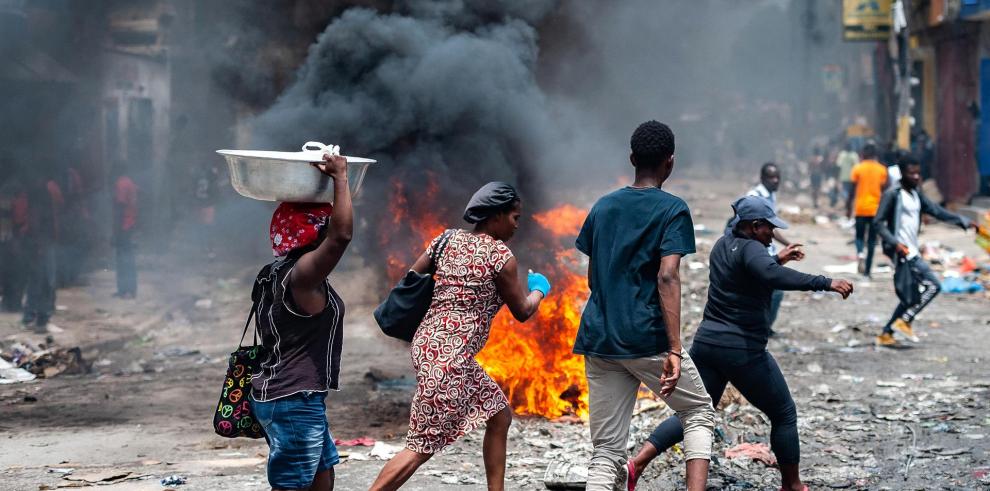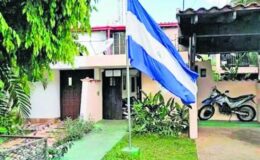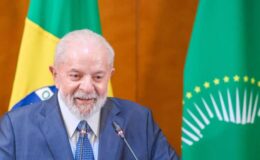Latin America and Caribbean still far from the mark in Human Rights. Panama stands ahead
- By : James Bryson
- Category : International Relations

The violence of armed gangs or gangs that sow chaos and death in poor countries and devastated by natural disasters, discredited justice systems and more authoritarianism as an antidote or as a result of corruption is the stamp left this year by Central America and the Caribbean, where they are going backwards human rights, according to analysts and international organizations.
This situation occurs in the midst of the “prolonged social crisis” suffered by Latin America and the Caribbean, a region in which it has not been possible to reverse the impact of the pandemic in terms of poverty and extreme poverty, which are at 32 .1% and 13.1%, respectively, according to the Economic Commission for Latin America and the Caribbean (Cepal).
ARMED VIOLENCE AND CORRUPTION
Life in Haiti has been utterly marked by violence in the last year, with the rise of armed gangs competing for control of the territory, mainly in Port-au-Prince, causing the exodus of thousands of people who were already suffering the ravages of natural disasters.
Thousands of murders and disappearances have been recorded in armed confrontations between the Police and the gangs, which kept the main oil terminal blocked for months, preventing the activity of shops, institutions, hospitals, schools and hospitals at a time when, in addition, cholera has reappeared.
Added to the activity of these groups is political corruption in Haiti, with the accusation of figures such as the president of the Senate, Joseph Lambert, allegedly linked to drug trafficking, corruption and serious human rights violations, including extrajudicial executions, according to reports from the States. Joined.
In Honduras, criminal violence and drug trafficking do not stop. The urban transport sector has protested because it can no longer support extortion by gangs which, in addition to having caused more than 1,000 deaths in the last 20 years, have forced the closure of hundreds of small businesses.
The Government declared on November 24 “the war on extortion” and announced a plan to combat the gangs.
And to curb corruption, President Xiomara Castro and the UN Secretary General, António Guterres, signed on December 15 the start of the process of establishing the International Commission against Corruption and Impunity in Honduras (CICIH).
In Panama, the new United States ambassador, Mari Carmen Aponte, said upon her arrival in mid-November that “fighting” corruption is one of the priorities of her “mission”, as well as supporting the country’s removal from international lists. of tax havens.
Corruption, along with the high cost of medicines and services such as electricity, prompted the largest protests in years in June in Panama, a country that has been plagued for years by scandals of public mismanagement and a highly discredited judicial system.
Guatemala experienced a turbulent year, with the imprisonment in July of journalist José Zamora, a critic of the government of Alejandro Giammattei, days after publishing corruption accusations against the president, and the exile of more than 40 people, including former anti-corruption prosecutors, magistrates and journalists.
In Costa Rica, press freedom was seen in the eye of the hurricane due to a series of altercations between the president, Rodrigo Chaves, and the sector, including an indirect violation of press freedom by the newspaper La Nación.
In Nicaragua, the harassment of the press continued and the authorities prohibited entry to the country to the EFE Agency delegate in Managua, the Nicaraguan Luis Felipe Palacios, when he was returning after a business trip in Panama.
“We share that the application for entry has not been authorized by the Nicaraguan Migration and Immigration authorities. You will not be allowed to board,” reads the email sent to the EFE delegate in Nicaragua by the Avianca airline in Miami (USA). .) where he was preparing to take a direct flight to his country.
COMPLAINTS OF AUTHORITARIANISM
The party of Nicaraguan President Daniel Ortega won 100% of the governments of the country’s 153 municipalities in an election held in November that, like his re-election more than a year ago, was branded a farce by the opposition, which denounces the existence of an autocracy and demands the release of hundreds of “political prisoners”.
After the social riots of 2018, which Ortega called a coup attempt and which left hundreds dead, this year the “authoritarian drift” of the Sandinista leader has intensified, according to opposition politicians and analysts, from which not even bishops have been spared. priests, nuns, businessmen, journalists, or NGOs.
The Inter-American Court of Human Rights declared Nicaragua on November 29 in “permanent contempt” of the numerous orders to release imprisoned opponents.
In Cuba, the police have arrested dozens of people this year in peaceful protests, many of them carried out after the passage of Hurricane Ian, and the prosecutor’s office has advanced that it will proceed against the defendants, mainly for public disorder.
Dozens of trials have been held throughout the year over the 2021 anti-government protests, the largest in decades. NGOs have already registered more than 600 sentences, some with sentences of up to 30 years in prison.
In El Salvador, the war against the gangs of the Government of Nayib Bukele has taken off the streets, according to official data, more than 58,000 gang members and people linked to these gangs, who came to make this country the most violent in the world.
But activists denounce human rights violations in the application of the state of emergency established in March to combat gangs and which the population approves of by 75.9%, according to a recent survey.
The Salvadoran president is accused by the opposition of maintaining an “authoritarian drift” supported by his co-religionists in Parliament and evidenced in actions such as the dismissal of the attorney general or the resolution of the new constitutional magistrates that opened the door to presidential re-election.



No Comments